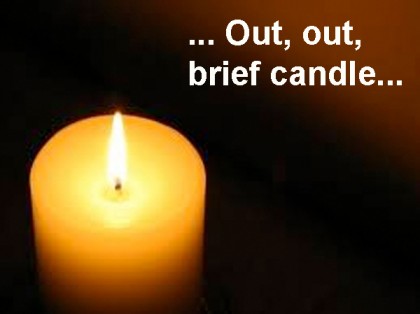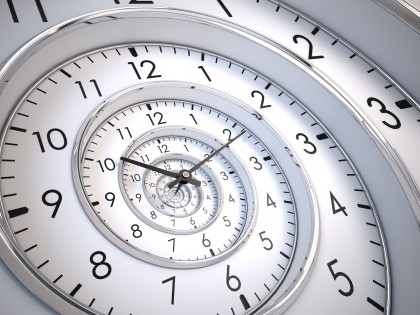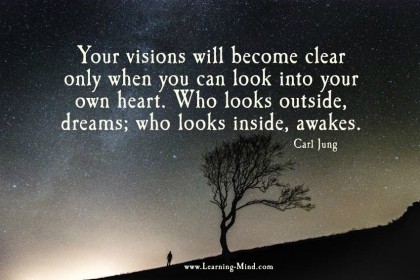Beltane Sumi-e Moon
 “Tomorrow, and tomorrow, and tomorrow,
“Tomorrow, and tomorrow, and tomorrow,
And, then, time. Last qabbalah class on time yesterday evening. Next week presentations. I have to come up with something and I got nothin’. Might go with an hourglass. It’s a nice physical symbol since in it time seems to run out, then be restored with an easy flip. Hourglasses, on their sides, are also shaped like the infinity image. So, there’s measured time, yet measured time that can be reversed, and eternal time, running on past the end of earthly time. Might go with Shakespeare.
 We’ve been pulling at the strands of various ideas about time, from measured time to eternal time to shabbat moments and the radical obvious, time is only ever the present. The past and the future have no reality, no agency, save in the present.
We’ve been pulling at the strands of various ideas about time, from measured time to eternal time to shabbat moments and the radical obvious, time is only ever the present. The past and the future have no reality, no agency, save in the present.
Rabbi Jamie asked an interesting question last night. Why do any of this? What’s the point? He leans toward the practical, unwilling to dwell only in the abstract. Learning has to count. As readers of this blog know by now, I’m more on the dwelling in the abstract end of the pool, so I appreciate his pulling me back into this life with questions like this.
 The answer he gave to his own question, with which I agree, was this. I’m not quoting. We do it to hold our notion of self more lightly, to give the ego a rest from its orientation to survival, to making it in the world. At the soul level, the most basic level of our human existence, we all connect. Think the collective unconscious, the divine spark, in the image of the sacred. In effect qabbalah posits an Oversoul, or better, an under or inner soul, the quality of which is the same for all humans.
The answer he gave to his own question, with which I agree, was this. I’m not quoting. We do it to hold our notion of self more lightly, to give the ego a rest from its orientation to survival, to making it in the world. At the soul level, the most basic level of our human existence, we all connect. Think the collective unconscious, the divine spark, in the image of the sacred. In effect qabbalah posits an Oversoul, or better, an under or inner soul, the quality of which is the same for all humans.
I mentioned the irony that we spend our time developing a firm sense of self, striving for authenticity and compassion, only, at the end of life to give it up. Yes, we all agreed, that’s a good reason for holding the self lightly. We have to let it go. The soul, if there is such a thing, and I’m not ready to say there isn’t, that links us all to all, does not need the self.
The image, from Rabbi Rami Shapiro, that makes this clearest for me was that of waves on the ocean. Our life is a wave on the ocean. It rises out of the ocean, exists and moves on its own, and at its end, sinks back into the ocean. Never was it anything other than ocean.
